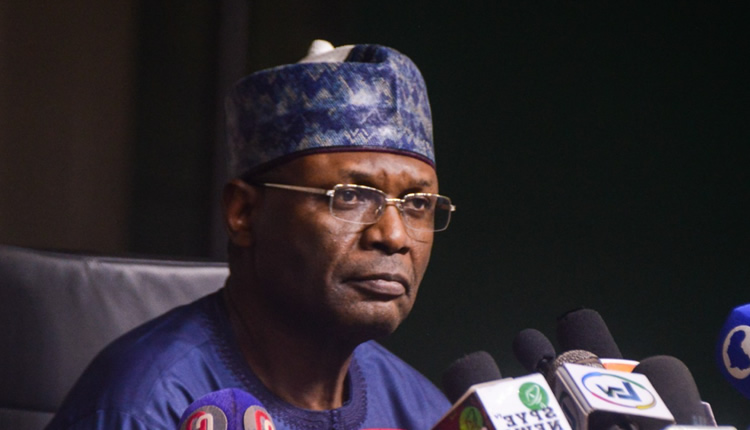The Independent National Electoral Commission (INEC) has announced its intention to collaborate with the National Assembly to establish clear legal provisions that would enable inmates in Nigerian correctional facilities to participate in elections. This move aims to address the legal ambiguity surrounding inmate voting rights and ensure that a significant portion of the population is not disenfranchised. INEC Chairman, Professor Mahmood Yakubu, highlighted the need for legislative clarity, referencing Section 12(1)(e) of the Electoral Act 2022, which currently restricts voting rights to citizens “not subject to any legal incapacity to vote.” This provision presents a challenge to extending suffrage to inmates, many of whom are awaiting trial and have not been convicted of any crime. The commission aims to work with the National Assembly to amend or clarify this section to pave the way for inmate voting.
Professor Yakubu acknowledged the existing legal precedent supporting inmate voting rights, citing court rulings that affirmed this right. He referenced a 2014 Federal High Court ruling in Benin and a subsequent 2018 Court of Appeal decision, both of which upheld the voting rights of pre-trial detainees. These rulings emphasized that voting is a voluntary right that should be asserted by citizens and not imposed by law. This legal backdrop reinforces the INEC’s position and provides a foundation for their efforts to secure legislative changes. The commission recognizes that implementing inmate voting presents logistical and operational challenges, and has already initiated preliminary work in this area.
A joint technical committee comprising INEC and the Nigerian Correctional Service (NCoS) has been established to explore the modalities of inmate voting. This committee has identified key operational considerations, including access to correctional facilities for voter registration and education, the establishment of polling units within facilities, observer access, media coverage, and the role of political parties in campaigning and appointing polling agents within these unique voting environments. These considerations reflect the complexity of implementing inmate voting while preserving the integrity and transparency of the electoral process. The commission understands the need for a comprehensive and well-defined framework to address these multifaceted challenges.
The collaboration between INEC and the NCoS is crucial for addressing the practicalities of inmate voting. The NCoS provided critical data, revealing that over 81,000 inmates are currently held across the country, with a significant majority (over 66%) awaiting trial. This statistic highlights the potential impact of extending voting rights to this substantial segment of the population, many of whom have not been convicted of any crime and retain their fundamental rights as citizens. The NCoS Controller General, Sylvester Nwakuche, strongly advocated for inmate voting rights, urging that these individuals should not be denied their fundamental political rights. He stressed the importance of recognizing inmates as citizens deserving of equal treatment under the law and emphasized the need to work collaboratively to overcome the technical and logistical hurdles involved in implementing inmate voting.
The call for inmate voting has garnered support from civil society organizations, including the Carmelite Prisoners’ Interest Organisation, which has consistently advocated for this right. The Senate and House of Representatives committees on electoral matters have also expressed a positive disposition towards exploring legislative changes to facilitate inmate voting. This widespread support from diverse stakeholders reflects a growing consensus on the importance of inclusive and accessible elections. Former Senator Shehu Sani, who has personal experience with the prison system, welcomed the reform and estimated that it could add approximately 100,000 votes nationwide. He highlighted the internal power dynamics within correctional facilities, noting that long-term inmates and influential figures within the inmate population would likely exert considerable influence over voting patterns. However, he ultimately commended the initiative as a significant step towards greater inclusivity and justice.
The INEC’s commitment to engaging with the National Assembly underscores the importance of legislative action in enshrining inmate voting rights. The commission aims to secure clear legal provisions that remove the existing ambiguity and create a pathway for the implementation of this crucial reform. The collaborative approach, involving the NCoS, civil society groups, and legislative bodies, demonstrates a commitment to addressing the practical and legal complexities involved in extending suffrage to inmates. This initiative aligns with the broader goal of ensuring that all eligible citizens can exercise their right to vote, regardless of their circumstances. The envisioned reform holds the potential to strengthen democracy by promoting inclusivity and ensuring that a significant segment of the population is no longer excluded from political participation. The collaboration between INEC, the NCoS, and the National Assembly is vital for navigating the legislative and logistical hurdles and realizing the goal of extending voting rights to inmates, contributing to a more inclusive and representative electoral system in Nigeria.


